4:08 am: Rupture of Reservoir Dike: Instant Evacuation Needed
In the tiny town of Paczkow, situated in southwestern Poland, the mayor proclaims an urgent evacuation of the lower-lying districts due to a dam rupture at a nearby reservoir on the Glatzer Neisse, a tributary of the Oder. "There's no guarantee the damage won't escalate further," Artur Rolka warns in a social media post. He encourages evacuees to report in and requests those residents spared by the flooding to relocate to safe city locations. The decision for mandatory evacuation followed a voluntary plea going unheeded, as reported on Polish television.
15:54: Habeck advocates for intensified climate actionVice-Chancellor Robert Habeck advocates for boosted energy and environmental protection in response to the flood disaster alarming several European countries. "Rapidly expanding renewables, energy transformation, and climate-friendly production" are required, he shares with Funke Mediengruppe. "More frequent floods, incidents like the Ahr valley, this year in Bavaria - they represent the consequences of the climate crisis," says Habeck. "Our efforts to combat the climate crisis are pivotal." Frequent extreme weather events, however, are currently unpreventable. He also encourages proactive measures such as robust dikes, storage systems, and expanded river space for better protection.
15:36: Death toll from floods escalatesThe body count from the floods in various European countries has now risen to at least 15, with Austria (3 deaths), Czech Republic (1 death), Poland (5 deaths), and Romania (6 deaths) among the hardest hit.
15:21: Poland declares state of emergency for some regionsPoland imposes a state of emergency for flood-impacted areas. The government in Warsaw approves the decree during an emergency meeting, affecting Lower Silesia, Silesia, and Opole provinces for 30 days. The state of emergency grants authorities higher authority to enforce orders, with civil liberties and rights temporarily suspended. This includes the ability to compel evacuations from specific locations, areas, or facilities. Restrictions also extend to people being in certain prohibited areas.
14:59: Experts explain extreme rain causesInundated landscapes and roads, saturated dikes, and overwhelmed retention systems: one of the worst floods in decades has left a devastating impact on several European countries, featuring Austria, Poland, Czech Republic, and Romania. But why are extreme rain events and flood risks becoming more prevalent? ntv consults with water expert Georg Johann to explore.
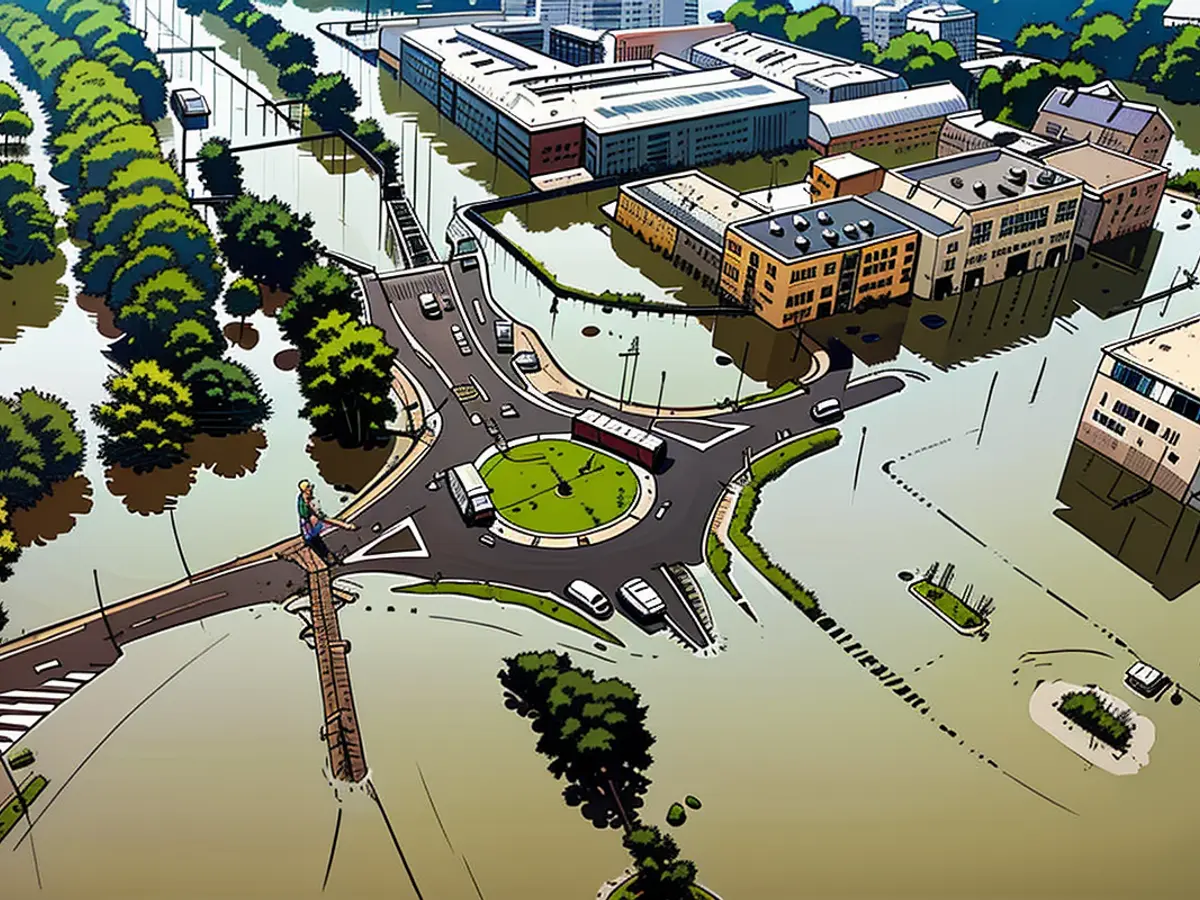
14:34: Austrian Federal Railways extend travel warning until ThursdayDue to the severe weather conditions plaguing large parts of Austria, Austrian Federal Railways (ÖBB) has prolonged the urgent travel warning issued on September 13 through September 19. "We strongly urge travelers to delay non-essential journeys during this period," ÖBB explains on its website. Existing bookings will remain valid through September 22.
14:19: Death toll from flooding in Europe escalatesThe death toll from flooding in Austria, Poland, Romania, and the Czech Republic has now reached at least eleven. Two additional fatalities have been reported in Austria, according to police. In the Czech Republic, one person drowned in the Krasovka river in the eastern region of Moravia-Silesia, as stated by police president Martin Vondrasek on public radio. The count of casualties in the four countries has surged to eleven; Czech authorities also report at least seven missing individuals.
14:04: Federal government offers aid to flood-stricken EuropeansThe German federal government is extending assistance to individuals affected by the floods in various European countries. "The affected people in our neighboring European countries, our partners, and the affected individuals here must know: We closely monitor the situation and stand ready to help," asserted deputy government spokeswoman Christiane Hoffmann in Berlin. "The pictures we see, along with the news of fatalities and missing persons, are horrifying. On behalf of the federal government, we offer our condolences and sympathies to all those affected."
13:43: Orbán postpones foreign engagementsHungarian Prime Minister Viktor Orbán has deferred all his "outside commitments" in response to the flooding in his country. "Due to the extreme weather conditions and the ongoing flooding in Hungary, I have postponed all my external commitments," Orbán announced on X, without providing further details. Orbán was scheduled to present in a debate on the Hungarian EU Council presidency's 6-month program in the European Parliament in Strasbourg on Wednesday. Orbán often experiences harsh criticism from the European Parliament and European Commission.
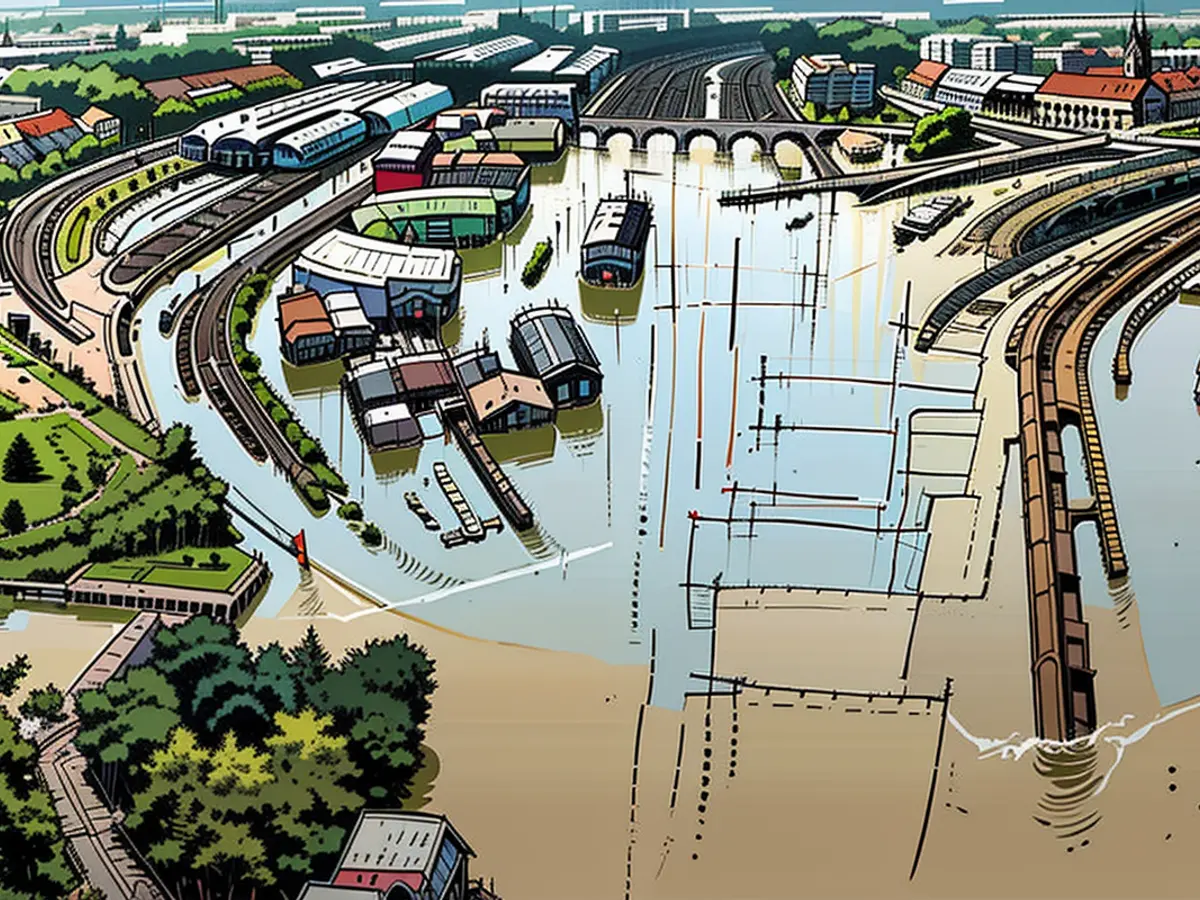
13:12: Ostrava submerged: Czech Republic's third-largest city sees dam breaches
Expansions in evacuations have been necessary in Ostrava, the Czech Republic's third-largest city, due to imminent flooding risks. As reported by Environment Minister Petr Hladik following an emergency meeting, there seem to have been dam breaches in various districts. Residents were partially rescued using inflatable boats.Over 100 cubic meters of water flow through the breaches every second. Efforts are underway to fill the gaps with stones.Located at the intersection of multiple rivers, including the Oder and the Opava, Ostrava is home to approximately 285,000 inhabitants. Situated about 280 kilometers east of Prague, this mining and industrial city has experienced complete disruption in train traffic to Ostrava and further towards Poland. A power plant had to be shut down, while nearby Bohumin faced power and mobile network outages due to flooding. The drinking water supply has collapsed in numerous locations.
12:33: Breaking Rainfall Record: 4,500 Milliliters of Rain per Square Meter in Czech TownThe unrelenting rainfall from depression "Anett" in the Czech Republic near the Polish border has set a new record: Since Friday, Serec has witnessed 4,500 milliliters of rain per square meter. This backs up weather expert Oliver Scheel's claims that this is the highest rainfall in recent times, according to ntv.de. In contrast, Germany's Ruhpolding/Berchtesgadener Land boasts 3,200 milliliters in four days, Austria's St. Pölten area receives 3,640 milliliters, and Lilienfeld has 3,690 milliliters, while Vienna measures 2,790 milliliters, before its measuring stations failed. Poland's Katowice witnessed the most rain, with 2,000 milliliters.
12:25: Romania: Six Dead in Carpathian Region due to FloodingHeavy rain and flooding have claimed at least six lives in Romania's Carpathian region. Particularly affected districts include Galati, Vaslui, and Iasi in the eastern part of the country. Around 300 individuals required rescue, and an estimated 6,000 farmhouses sustained damage. The deceased were mainly elderly individuals, such as two women aged 96 and 86. The highest flood warning level remains in effect until midday. Remote villages were hardest hit, with residents climbing onto rooftops to avoid being swept away. Approximately 600 firefighters were deployed to the scene.
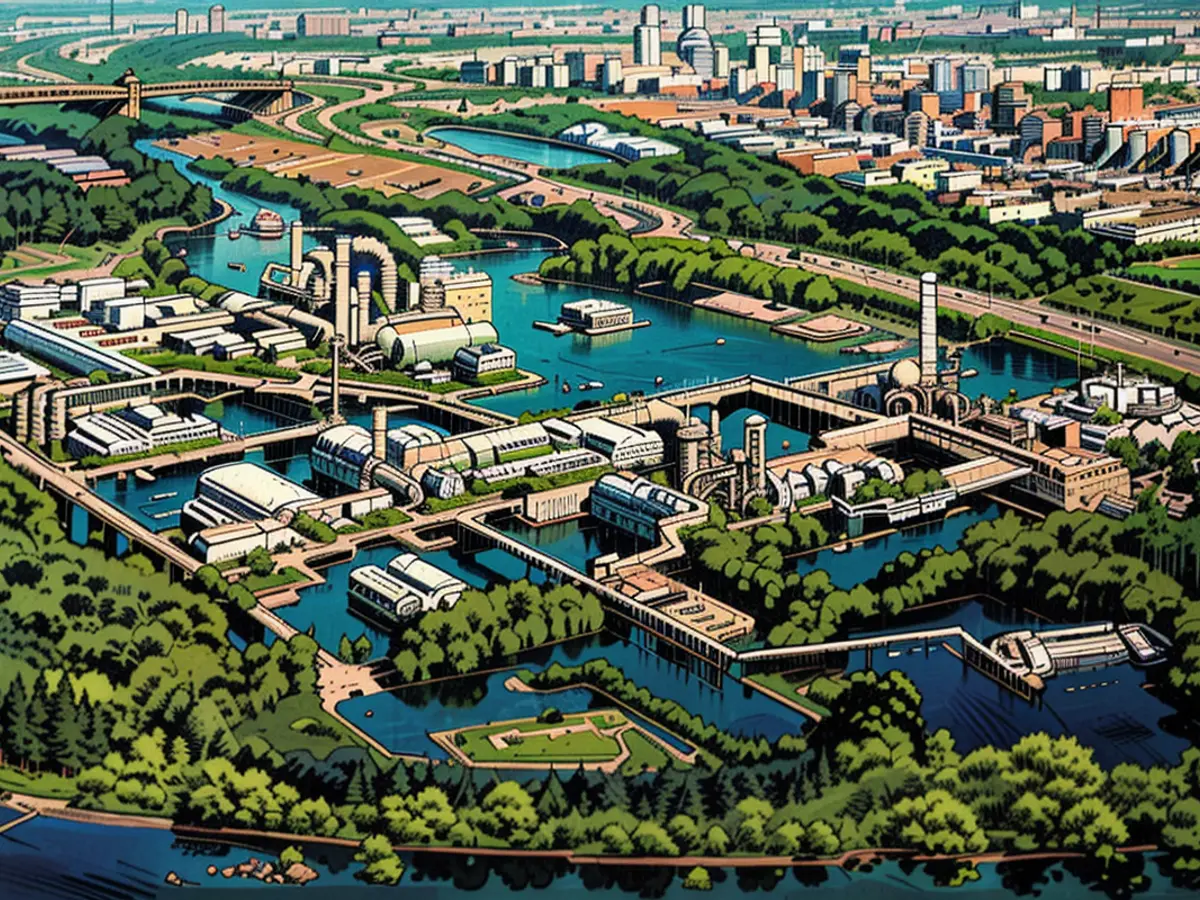
11:59: Flooding Continues in Saxony: Elbe River at Peak Level Expected TomorrowSaxony's Elbe River continues to flood, with the water levels still rising. As of Monday morning, Dresden's water level stands at 5.62 meters, as reported by the state flood center. The second flood warning level was imposed on Sunday evening, and the alarm level three threshold, at 6 meters, is expected to be exceeded early Tuesday morning. The Elbe River in Dresden could continue rising until Wednesday evening, reaching its peak. In Schönau, near the Czech border, alarm level three is already in effect, with an Elbe River water level of 6.13 meters. Görlitz's Neisse River also remains at the third-highest alarm level, but the flood center anticipates a decline in water levels. The concept of a flood's highest point is referred to as the peak.
11:33: Austria: Two More Lives Lost to FloodingIn Austria, two additional victims have succumbed to the floods, as reported by the police. A 70-year-old man and an 80-year-old man lost their lives in their residences within Lower Austria communities, both victims of their home's floodwaters. On Sunday, a firefighter lost his life while attending to a basement flood situation. Emergency measures are in place in eastern Austria in response to continuous rainfall. A total of 1,800 structures have been evacuated, and considerable road closures have occurred due to flooding.
11:01: Breslau Declares Flood Emergency
As a result of intense storms and flooding in southwestern Poland, Breslau (Wrocław) in Lower Silesia is preparing for an incoming flood wave. Mayor Jacek Sutryk has declared a flood emergency for the city on the Oder River. Measures planned for containment include round-the-clock monitoring of dikes, control and protection of waterways, and closure of dike crossings, as per Sutryk's Facebook video. The flood wave is expected to reach Breslau by Wednesday. Prior forecasts suggesting Breslau would avoid severe flooding have been revised, according to the mayor. While the flood is not projected to reach the intensity of the 1997 Oder flood, which inundated one-third of the city, Sutryk emphasized that the current infrastructure is in much better condition, with new dikes, retention basins, and polders. He hopes the flood will not penetrate into the city.
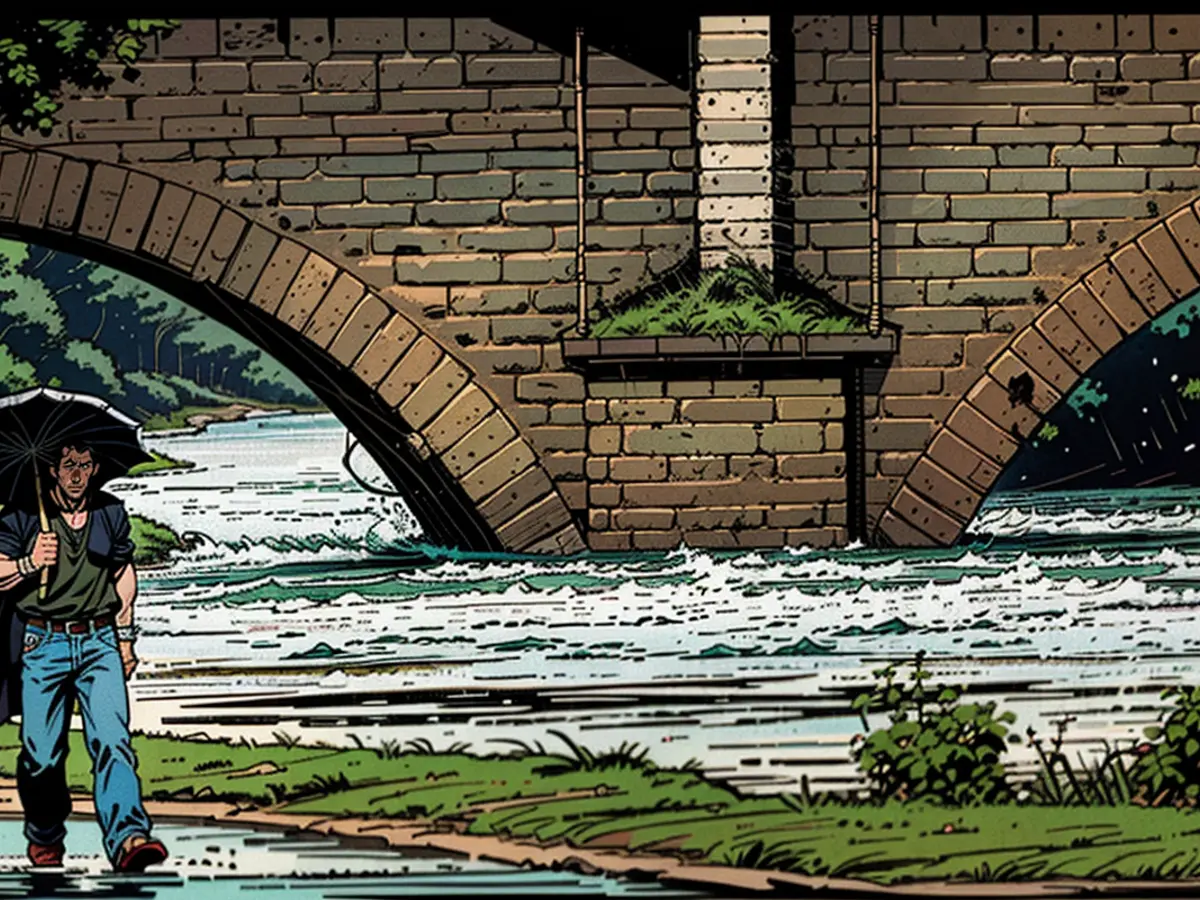
10:35: Governor on Flood Situation: "It Remains Critical"
Despite a brief break in torrential rainfall overnight, the flood situation in eastern Austria remains precarious. "It's not over, it remains critical, it remains dramatic," states Lower Austria Governor Johanna Mikl-Leitner. Approximately 80 milliliters of rain per square meter are expected regiónalmente on Monday. A major concern is the dams, with authorities warning of a high risk of dam failure. Life's normal activities are severely disrupted, with over 200 roads closed, approximately 1,800 buildings evacuated, and many students and kindergarten children staying home, Mikl-Leitner said. Around 3,500 households currently lack electricity. The extent of the damage is still incalculable. "The flood victims will certainly be assisted," Mikl-Leitner said. In recent days, up to 3,700 milliliters of rain per square meter have fallen regiónalmente in Lower Austria - several times the typical monthly amount.
Elbe River Levels in Saxony Climb Further: 5.54 Meters in DresdenAccording to data from the State Flood Center, the water level in Dresden hit 5.54 meters at sunrise. The forecast suggests that the six-meter mark will be surpassed later, potentially activating the second-highest alarm stage 3. This level could result in flooding of urban areas. The alarm stage 3 has already been reached at the Schöna gauge on the Elbe near the Czech border, where the water level stood at a high 6.09 meters. Similarly, the alarm stage 3 applies to the Lusatian Neisse at Görlitz on the Polish border, where the water level was 5.56 meters, just a handful of centimeters away from the highest alarm stage 4. To ensure safety, a section of the B99 federal highway has been closed in Görlitz as per the police's statement. The alert level for stage 3 is 4.80 meters at this location.
09:49 Loss of Life in Czech Floods: One Confirmed Fatality, Seven MissingCentral Europe has suffered its first confirmed fatality due to the ongoing floods in the Czech Republic. Authorities have also reported at least seven missing individuals. A resident drowned in the Krasovka river in Bruntal district, Moravia-Silesia, as per Police President Martin Vondrasek on public radio. A vehicle with three individuals was swept away by floodwaters near Jesenik in the Hrubý Jeseník Mountains, leaving no sign of the vehicle. Other individuals were swept away by various water bodies, including the Otava River. A resident from a retirement home on the Polish border is also reported missing. Czech Prime Minister Petr Fiala called it a "century-flood" - a flood that statistically occurs once in a century in the same area. Previously, flood-related fatalities were reported in other European countries (06:40 update): one firefighter in Austria, a man in Poland, and six persons in Romania.
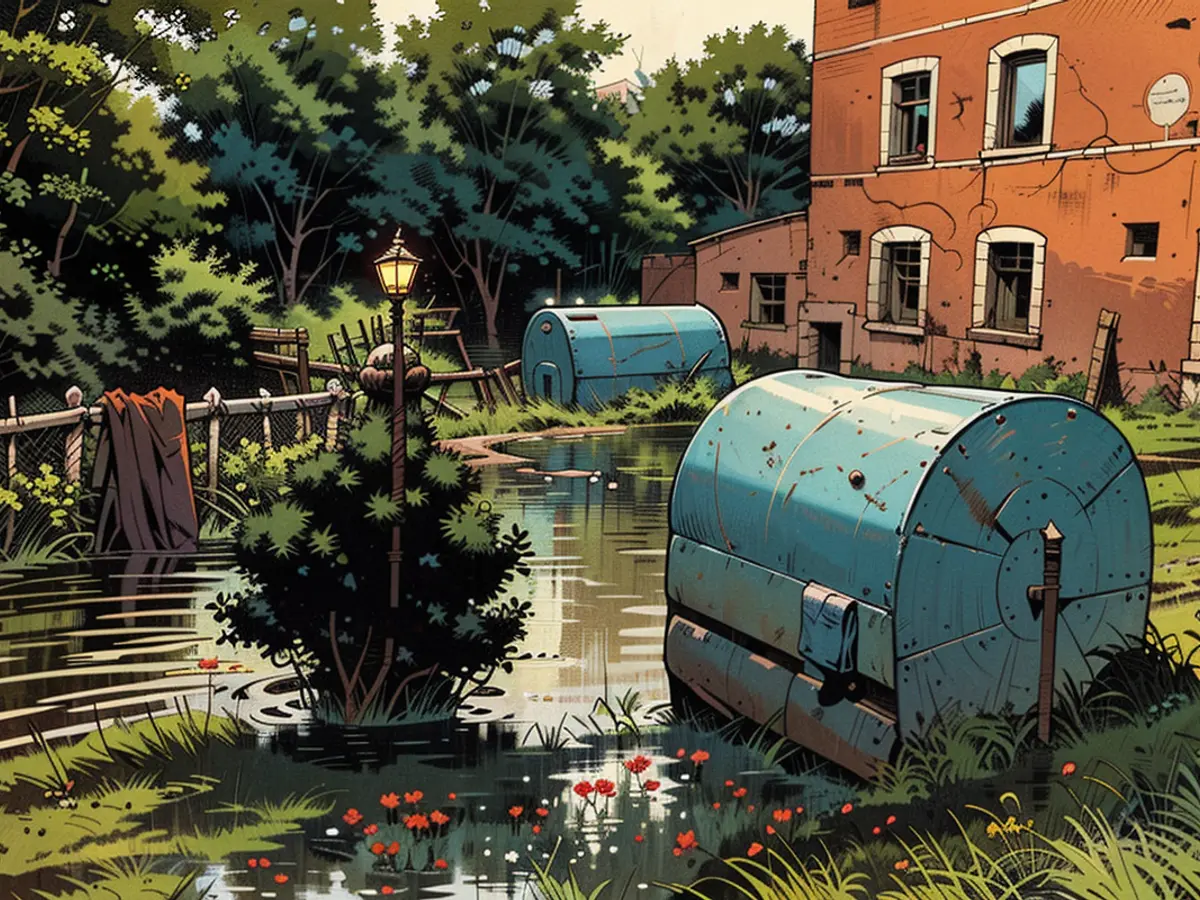
09:17 Görlitz Incident: Woman Falls into Neiße and is RescuedA woman slipped and fell into the Neiße river while monitoring the water level in Görlitz. Initial police reports suggest that the woman slipped near the Parkhotel Merkur and was carried downstream for about 700 meters before she managed to pull herself out near the Vierraden Mill weir. She was rushed to the hospital for treatment due to hypothermia.
09:00 THW Prepares for Flooding in Germany's Eastern RegionsThe Federal Agency for Technical Relief (THW) is preparing for potential flooding in eastern Germany's regions. THW head Fritz-Helge Voss noted on ZDF's "Morning Magazine" that additional forces may be deployed to the Elbe and Oder rivers if necessary. Voss advises the affected population to prepare a small emergency kit. He stated that Germany has yet to encounter the severe weather conditions which are expected, but the Elbe, Neiße, and Oder rivers are forecast to flood this week. Over the weekend, THW had approximately 140 personnel in Bavaria and Saxonia, including at Dresden's collapsed Carolabridge.
08:43 Poland's Crisis Meeting: State of Disaster Declared in Southwestern RegionsPolish Prime Minister Donald Tusk convened a cabinet meeting on Monday to discuss the severe damage caused by flooding in southwestern Poland. The declaration of a state of disaster is being considered, which requires cabinet approval. Persistent rainfall in southwestern Poland, near the Czech border, has resulted in floods that affected the town of Nysa in the Opole region particularly during the night. The Glatzer Neiße, a tributary of the Oder, flooded the emergency room of the nearby hospital, as reported by the PAP news agency. A total of 33 patients, including children and pregnant women, were evacuated using boats.
08:15 Flooding Threat in Bavaria: More Rain and Rising Water Levels ExpectedThe flood situation in Bavaria remains critical in some areas, with further rainfall on the horizon. Police headquarters reported that the situation in the affected areas has not significantly improved overnight. There's still no reprieve: the Hochwasser-Nachrichtendienst (HND) forecasts further increases in water levels due to the rainy start of the week. Some expected water level increases include the Danube in Passau, the Vils in Vilshofen, and the Isar in Munich. The situation is expected to gradually improve from Wednesday. Until Tuesday, the German Weather Service (DWD) anticipates continuous rain from the Alps to the foreland.
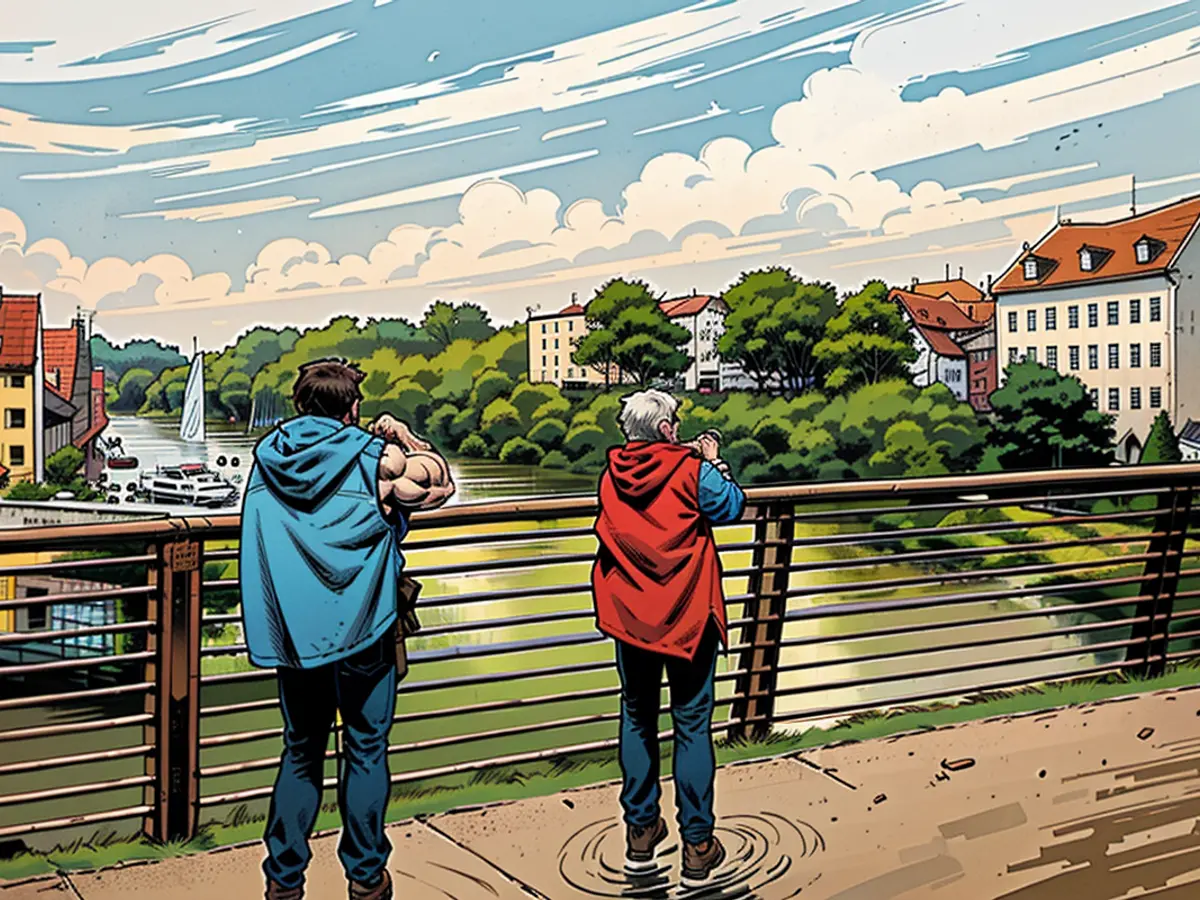
07:32 No Relief in Sight for Czech Flood and Inundation AreasCzech flood and inundation areas are not expecting any respite. The flood wave on the March (Morava) reached Litovel, about 200 kilometers east of Prague, where entire streets were submerged according to CTK news agency reports. The authorities of the affected town with around 10,000 inhabitants urged the public to not hinder the emergency services. "We anticipate further increases in the water level of the river in the next few hours," warned the mayor on social media.
07:03 Dam Rupture Leads to Terrifying Floods in PolandFollowing a dam burst in Poland, residents are on edge as they anticipate the destructive floodwaters moving towards the Glatzer Neiße region. Video captured by eyewitnesses showcases the raw power of the surging waters.
06:40 Flooding Disasters in Europe: Loss of Life in Poland and RomaniaPoland and the Czech Republic are still reeling from the damage caused by a hundred-year flood, with Lower Austria facing a critical situation due to heavy rainfall. Regrettably, numerous lives have been claimed across various EU countries due to the floods: A firefighter passed away in Austria, an individual in Poland, and six people in Romania.
06:12 Evacuations Required Due to Flooding in the Czech RepublicThe worst storms in years caused flooding in entire cities like Jesenik in the Altvatergebirge and Krnov, situated on the border with Poland. Over the weekend, emergency services had to employ boats and helicopters to rescue hundreds of people in Jesenik. Post water recession, there was an increased risk of landslides in various locations.
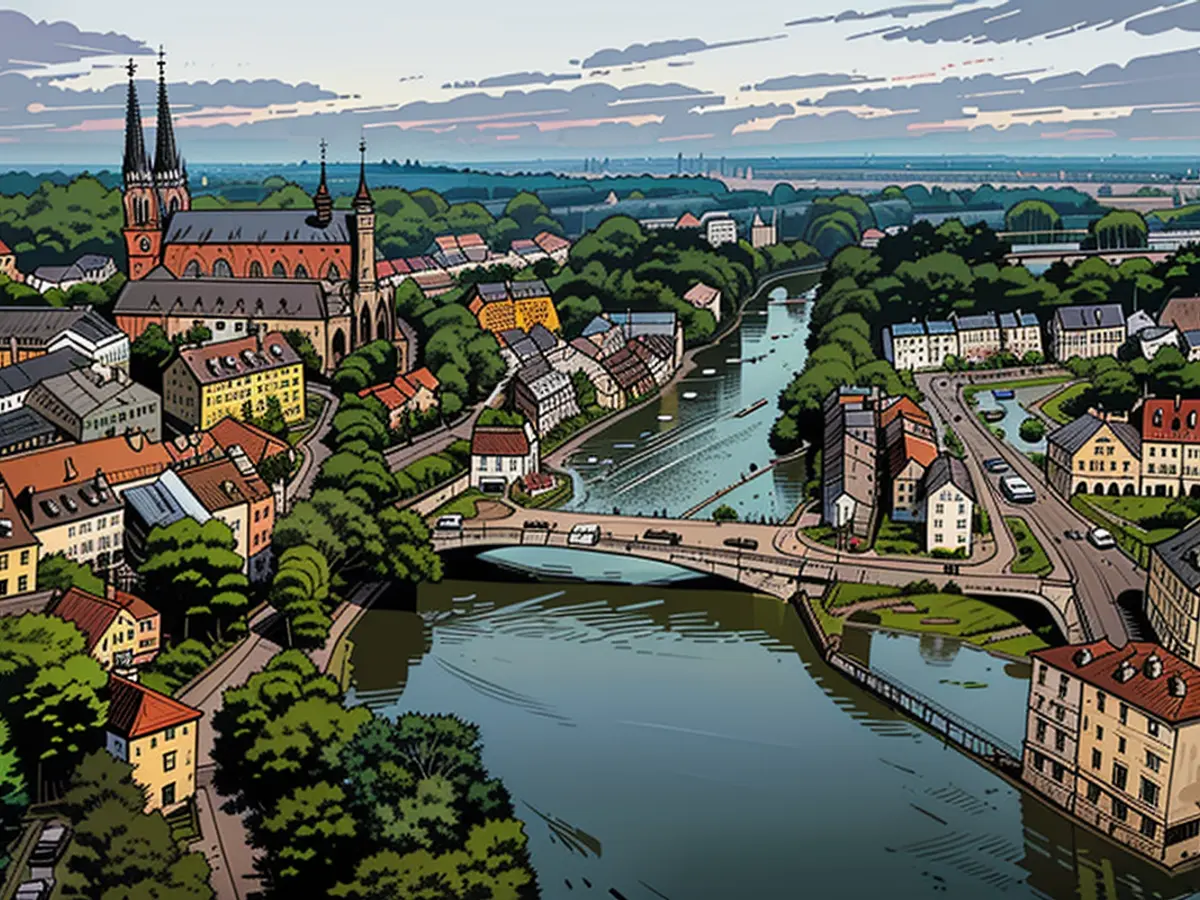
05:49 Cruise Ship Passengers Trapped in ViennaThe unprecedented flooding on the Danube due to heavy rainfall has left passengers on a Swiss river cruise ship stranded in Vienna. Around 100 passengers and about 40 crew members of the "Thurgau Prestige" remain unable to depart the beached ship, as reported by Swiss broadcaster SRF citing Thurgau Travel. The guests are unable to disembark because the gangway to the dock is submerged. According to media reports, several other cruise ships are also stuck in Vienna. Thurgau Travel states that local officials will decide when and if the passengers can leave the ship. As per passenger statements shared by SRF, they've been informed they'll need to stay on the boat until at least Tuesday. Originally, the "Thurgau Prestige" was scheduled to voyage from Linz to Budapest and back, but now it's stuck in Vienna.
"Mischievous weather phenomenon 'Anett', known internationally as 'Boris', has brought relentless rain and flooding to Poland, Czech Republic, Austria, and Romania. At least eight lives have been tragically lost so far."
- The extreme weather conditions in Europe, including the recent dam rupture in Poland, are highlighted by Vice-Chancellor Robert Habeck as reasons for the urgent need to boost energy and environmental protection.
- In the aftermath of the dam rupture in Poland, officials are warning of the possibility of further damage due to extreme weather events, such as floods, which have become more prevalent in recent times.






